If you’re thirsty for knowledge about important global development topics like climate change, you’re not alone. More than 19,000 people signed up for the World Bank’s free online course, Turn Down the Heat –a virtual guided tour of a World Bank- commissioned report by the Potsdam Institute and Climate Analytics on the likely impacts of a warming Earth.
The four-week Massive Online Open Course (MOOC) began Jan. 27 and just wrapped up. It featured interactive video talks by renowned climate scientists and practitioners, Google hangouts with international experts, discussion forums and social media collaboration via #wbheat on Twitter.
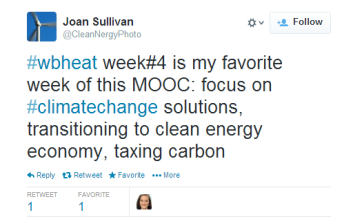
Students have been posting their final projects, called “digital artifacts,” on Storify, Wordpress, Flickr, YouTube, Tumblr and other platforms. 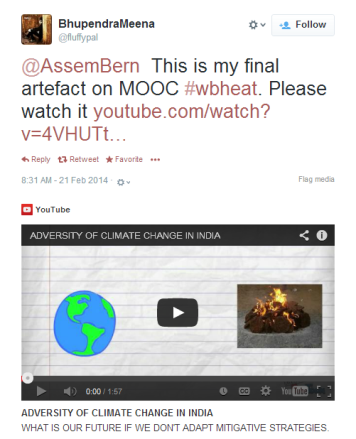
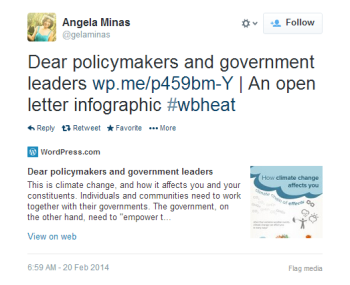
Turn Down the Heat is the World Bank’s first MOOC through Coursera, an education company partnering with universities and organizations to offer free courses. The World Bank Institute (WBI), the Bank’s learning arm, spearheaded this partnership with Coursera and worked with the climate change team to develop this first offering. About 60% of people taking the Turn Down the Heat MOOC were from developing countries, and about half were between the ages of 18-24, not the usual demographic for e-courses offered by WBI. With this first MOOC the Bank has a unique pedagogical model that focuses on the practical aspects of urging participants to "act now, act differently."
The course covered changes to climate and their impacts over hundreds of thousands of years; possible 21st century climates; what life would be like in a 4°C warmer world; and what we can do about it. Participants could choose to take the course as a “climate champion” – suitable for anyone with a strong interest in the topic – or as someone interested in climate policy, whether for government or nongovernmental organizations.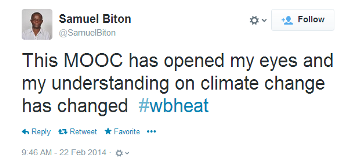
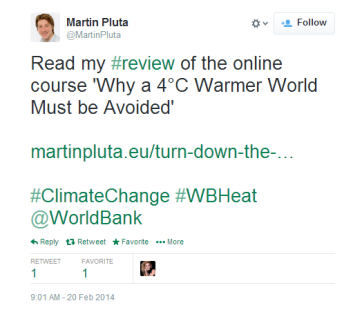
Could MOOCs be another way of sharing research and spreading development knowledge?
Abha Joshi-Ghani, director for the Knowledge Exchange and Learning Department at WBI, says MOOCs can help reach policy-makers, development practitioners, and community champions alike, as the World Bank Group and international community work to end poverty and promote shared prosperity. “With this new approach, we are attempting to improve how we turn our development knowledge into practical learning, at a scale that is necessary to achieve our goals.” Check out her blog post.
What do you think? Can MOOCs aid global development?

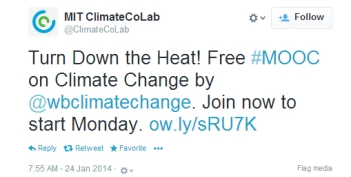
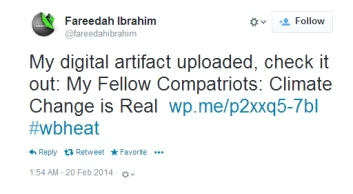
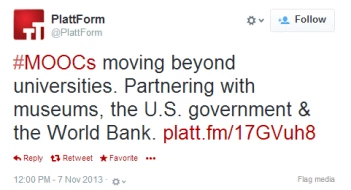
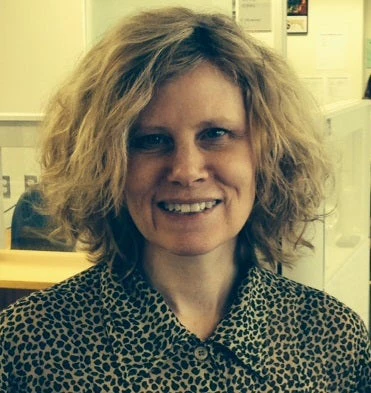
Join the Conversation